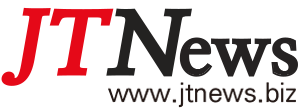The Korea Customs Service plans to expand tax support to small businesses and innovative SMEs.
The Korea Customs Service (KCS) recently announced that it will expand tax incentives, effective August 1, to alleviate the financial burden on small and medium-sized exporters and importers struggling due to the recent US tariff policy and to support these businesses.
A new support category for small businesses will be created, tailored support requirements will be introduced, and export voucher companies and companies selected as the Innovation Premier 1000 will also be added to the list of eligible recipients.
In particular, to support companies that excel in balancing work and family life, measures will be developed to expand exemptions from customs audits.

First, support will be expanded for small and medium-sized businesses (SMEs) by distinguishing them from SMEs.
Prior to this, tax support eligibility had been consolidated to SMEs with consistent import performance for the past two years, making it difficult for relatively small SMEs to receive substantial support.
Therefore, support eligibility will be divided into SMEs and small businesses, with more relaxed criteria for SMEs, allowing those with import performance within the past year to receive support.
Furthermore, exporters with certified origins and SMEs engaged in export development and innovation will be added to the list of eligible SMEs.
This year, exporters with certified origins, recipients of the Ministry of SMEs and Startups’ Export Voucher Support Program, and companies selected by the Financial Services Commission as Innovation Premier 1000 will be added to the list of SME exporters eligible for tax support, minimizing potential blind spots.
Meanwhile, the Korea Customs Service has been providing customs audit deferral benefits to companies designated by the Ministry of Employment and Labor as excellent work-life balance companies, starting in 2023, to foster a culture of work-life balance and address the declining birth rate.
Starting this year, companies that operate family-friendly systems, such as childbirth and childcare support programs and flexible work arrangements, and those certified as family-friendly and youth employment-focused companies that comply with laws supporting work-life balance will be eligible for exemption from customs audits.
The threshold for additional tax levied when extending the payment deadline (installment payment) will also be abolished.
Previously, extensions and installment payments were only available for additional tax levied exceeding 50 million won. However, starting in the second half of this year, the threshold will be abolished to ease the financial burden on small and medium-sized enterprises (SMEs).
Furthermore, the application process for tax support, including payment deadline extensions, will be streamlined. Going forward, the IT system will be improved to allow companies to quickly and easily apply for tax support through Unipass, the KCS’s electronic customs clearance system.
Meanwhile, the KCS announced that it provided approximately 830 billion won in tax support to approximately 1,300 SMEs in five sectors in the first half of this year to normalize the operations of SMEs facing management difficulties.

A Korea Customs Service official said, “We will do our best to expand tax support so that small business owners and small and medium-sized enterprises (SMEs) who are struggling due to the recent economic slowdown and sluggish domestic demand can quickly regain their vitality,” adding, “We hope that small business owners in need of assistance and honest SMEs participating in government policies will actively utilize this tax support.”
[Editor Lee]







